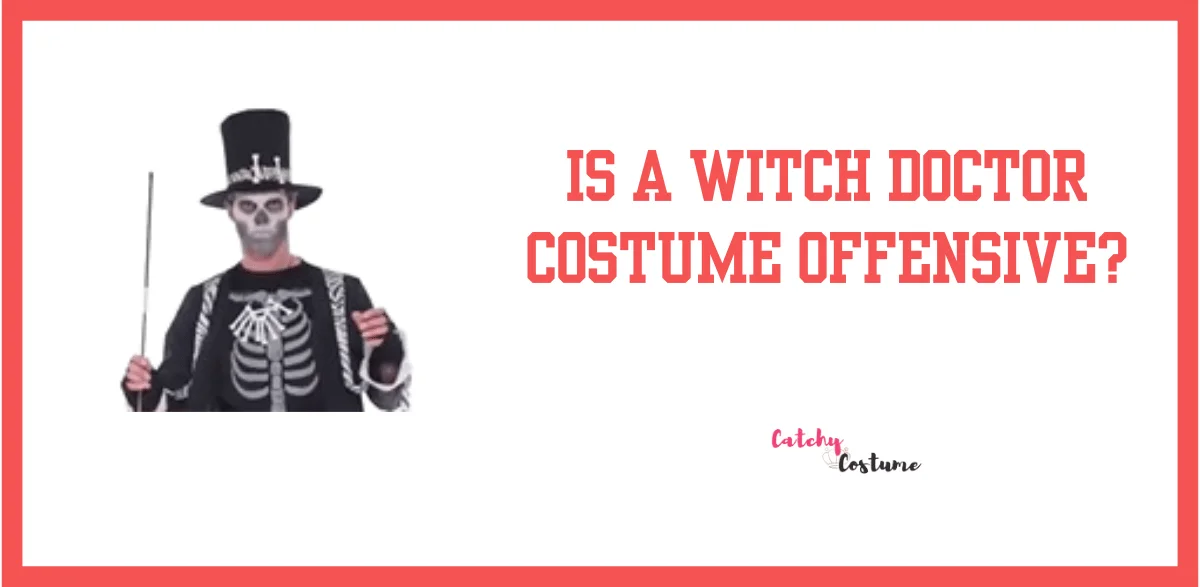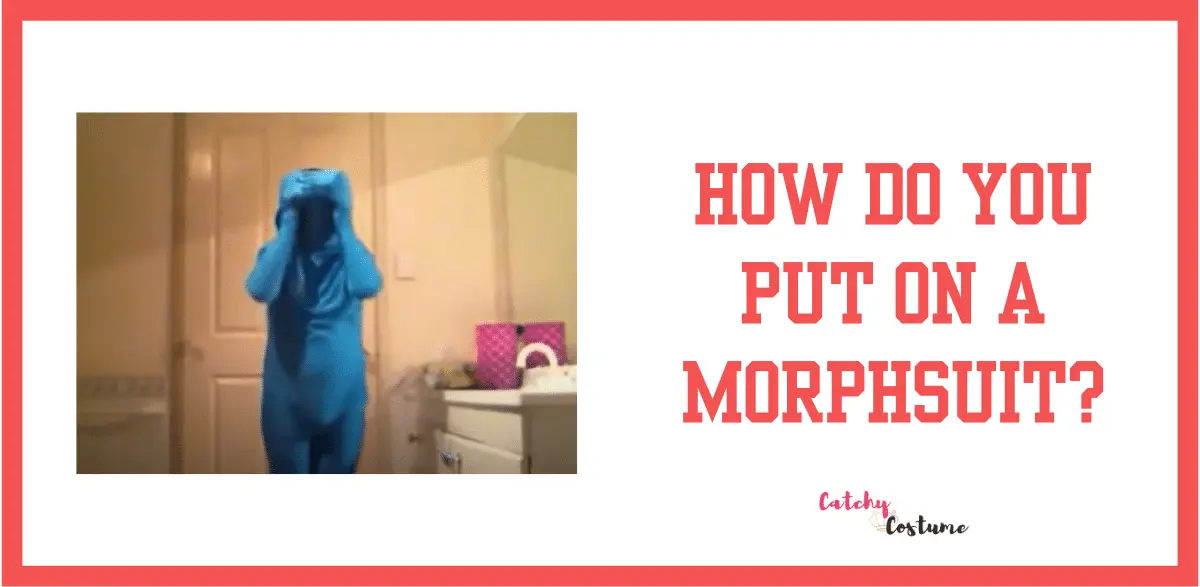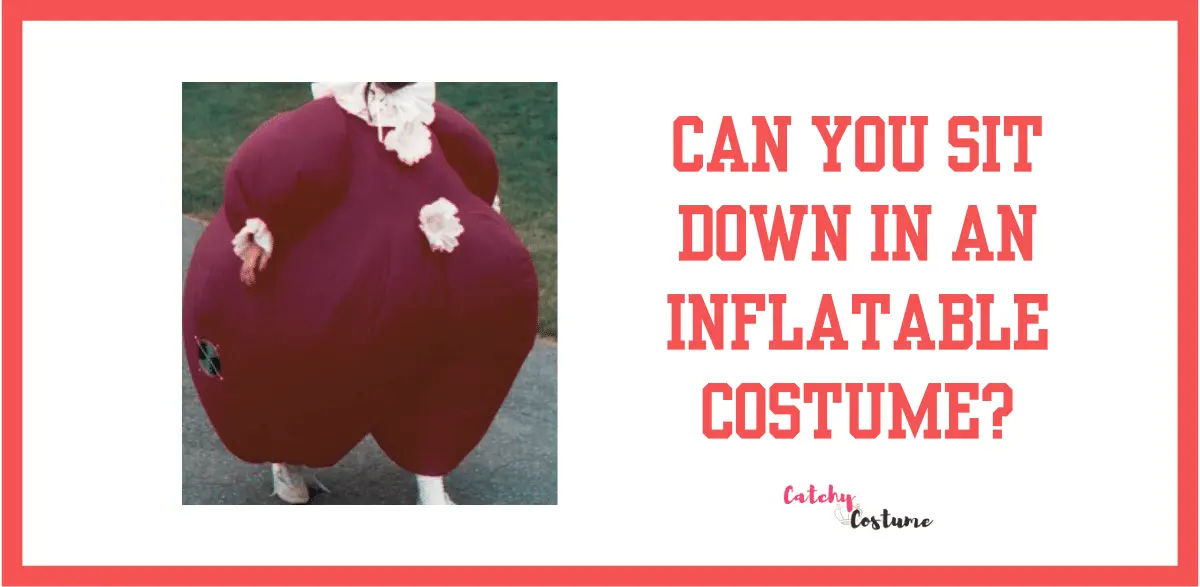A witch doctor costume can be offensive as it may perpetuate cultural stereotypes.c African cultures.
Wearing a witch doctor costume can lead to accusations of cultural appropriation and insensitivity. These costumes often mimic the traditional healer roles found in various indigenous and African societies.
Such representations can trivialize their cultural practices and beliefs, reducing them to mere entertainment for those who don’t understand their significance.
As we engage in various festivities, it becomes crucial to select attire that respects the diverse cultures around us. Choosing a costume should involve considering its impact on others, particularly when it draws from cultural or religious symbols.
In our interconnected world, showing respect to all cultural heritages is more important than ever, especially during times of celebration. Therefore, thoughtfulness and awareness are key in avoiding costumes that could offend and perpetuate harmful stereotypes.
Introduction To The Controversy Surrounding Witch Doctor Costumes

Introduction to the Controversy Surrounding Witch Doctor Costumes
Every Halloween, cultural debates resurface over various costume choices. Among these, the witch doctor costume often emerges as a point of contention. Some see it as a harmless nod to the supernatural, while others view it as an offensive caricature.
The controversy hinges on multiple facets of cultural sensitivity, historical context, and appropriation. With this in mind, let’s delve into the complex backdrop of the witch doctor stereotype and its implications in modern society.
Exploring The Origins Of The Witch Doctor Stereotype
The term ‘witch doctor’ itself is a Western invention, a catch-all phrase that often inaccurately encapsulates a variety of indigenous healers and spiritual leaders from different cultures.
Understanding this term’s origins requires peering into the lenses of colonial explorers who encountered native practices and, through misunderstanding and ethnocentrism, labeled them as ‘witchcraft’. These misinterpretations have since been woven into popular media, cementing a stereotype that lacks depth and accuracy.
How Do You Put On A Morphsuit? Step-By-Step Guide
Cultural Significance And Misrepresentation
Given that ‘witch doctor’ roles have historically been of profound importance in many societies, their portrayal as mere costumes can be incredibly dismissive. These healers often play crucial roles within their communities, from medicinal practice to spiritual guidance. The misrepresentation through costumes not only trivializes their significance but can also perpetuate harmful myths that disrespect the very cultures they come from.
Is A Witch Doctor Costume Offensive: Modern Perceptions And Discussions
Today, the discourse surrounding witch doctor costumes is more intense than ever, with voices on social media and public forums questioning the appropriateness of such attire. Concerns center on cultural appropriation and the potential to reinforce negative stereotypes. As such, the dialogue encourages a re-examination of the assumptions and biases that may underpin the choice to don a witch doctor costume.
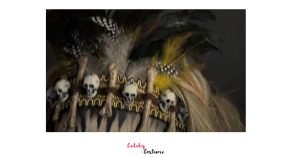
The Cultural And Historical Implications Of Witch Doctor Imagery
The concept of a witch doctor, often conjured as a Halloween costume or popular media trope, is fraught with cultural and historical implications that go beyond mere entertainment. This portrayal has been shaped by centuries of misunderstanding and appropriation of indigenous cultures, and the imagery often used bears significance that warrants closer examination.
To respectfully engage with this topic, it is essential to understand the actual roles these healers have played in their communities, as well as how their depiction has been twisted through the lens of colonialism and commercialization.
Understanding The Role Of Traditional Healers In Indigenous Cultures
Indigenous communities around the world have their trusted healers, commonly known as shamans, medicine men, or traditional healers, who serve crucial roles. They are not simply ‘witch doctors’ as often portrayed in popular culture, but rather:
- Custodians of cultural knowledge and practices
- Healers use a mix of herbal remedies, spirituality, and ritual
- Important figures for maintaining community well-being
These healers operate within a structure of profound respect, tradition, and spirituality that is fundamental to their societies.
Colonialism And The Perversion Of Indigenous Practices
The misrepresentation of traditional healers began with the advent of colonial expansion. As colonizers encountered indigenous practices, the lack of understanding and often deliberate demonization of these customs led to the term ‘witch doctor,’ implying dark or malevolent connotations. This narrative served to:
- Undermine indigenous belief systems for the sake of promoting colonial ones
- Justify the subjugation of native people and their knowledge
- Impose Christianity and “civilized” practices as superior
In reality, many traditional healing practices are now recognized for their depth and efficacy, and their distortion remains a painful reminder of cultural disrespect.
Misappropriation And The Commercialization Of ‘exotic’ Identities
In more recent times, the image of the witch doctor has become a caricature used for entertainment, often through costumes and media portrayals. This misappropriation:
| Effects of Misappropriation | Implications |
|---|---|
| Dilutes the authenticity of indigenous cultures | Leads to a loss of cultural heritage and respect |
| Perpetuates stereotypes | Contributes to racism and continued marginalization |
| Exploits sacred practices for profit | Undermines the value of traditional knowledge and trivializes serious cultural symbols |
The appropriation of witch doctor imagery into commodities for consumption often results in offensive stereotypes being sold as ‘exotic’ novelties, which creates a harmful cycle that disrespects and invalidates the rich histories and identities of the people originally practicing these roles.
Offense And Impact: Analyzing The Witch Doctor Costume Debate
With Halloween and themed parties inviting a myriad of imaginative attires, the discussion surrounding culturally sensitive costumes becomes increasingly pertinent. Among such costumes, the witch doctor outfit often sparks intense debate.
Critics argue that it caricatures and misrepresents indigenous spiritual leaders, while some supporters view it as harmless fun. Determining whether a witch doctor costume is offensive necessitates a deep dive into the perspectives of those directly impacted, the broader societal implications, and the motivations behind costume selections.
In this examination, understanding and empathy emerge as essential guides in navigating the complexities of cultural respect and appropriation.
Voices From Indigenous Communities: Opinions On Cultural Appropriation
Indigenous communities worldwide have voiced strong opinions on the use of their sacred symbols and figures for entertainment purposes. Their collective sentiment often highlights the following:
- Misrepresentation of their spiritual traditions
- Trivialization of their sacred practices
- Deep-seated wounds from historical exploitation
Respecting their voices is crucial in understanding why donning a witch doctor costume can be seen as an act of cultural insensitivity or appropriation.
Societal Consequences Of Perpetuating Stereotypes
The reach and impact of popular culture often underestimate the power of stereotypes in shaping societal attitudes. Witch doctor costumes frequently rely on exaggerated motifs that reinforce outdated and often damaging stereotypes about indigenous cultures.
Such portrayals can inadvertently contribute to a cycle of misrepresentation and ignorance, with the potential to:
- Demean the cultural heritage and spiritual beliefs of indigenous peoples.
- Encourage a superficial understanding of complex cultural practices.
- Normalize the disrespect of sacred traditions in public spheres.
The Role Of Intent And Awareness In Costume Choices
Intent plays a significant role in costume selection, yet it does not absolve one from the implications of a choice. While many may choose a witch doctor costume without malicious intent, awareness, and education are key components to recognizing potential offensiveness.
Understanding the history and cultural significance behind a costume can transform an uninformed decision into a thoughtful and empathic action — steering clear of choices that might marginalize or offend. Intentional awareness leads to more respectful and conscientious costume participation, creating a more inclusive and culturally sensitive celebration.
In today’s interconnected world, awareness and respect for cultural diversity are critical, especially when it comes to representing different cultures through costuming. With the rise of global consciousness, individuals are increasingly recognizing the importance of avoiding stereotypes and cultural appropriation.
This brings us to the delicate question: Is a witch doctor costume offensive? This inquiry is not just about a single costume but rather opens a broader discussion on the implications of our choices when selecting attire for events like Halloween and costume parties.
Is A Pinata Costume Appropriation? Break Your Doubt!
Guidelines For Culturally Respectful Costuming
Choosing a costume that honors cultural sensitivity means doing so with thoughtfulness and respect. Here are some guidelines to consider:
- Research: Take time to understand the origins of the costume and the culture it represents.
- Context: Consider the historical and contemporary context of the symbols or themes you are portraying.
- Intent vs. Impact: Reflect on the possible impact your costume could have on individuals from that culture, despite your intentions.
- Authenticity: Authentic representation avoids perpetuating stereotypes and focuses on accurate portrayals.
- Dialogue: Engage in conversations within your community to gain diverse perspectives on what is considered respectful.
The Impact Of Education On Making Informed Decisions
Educating ourselves about the cultures and traditions we wish to emulate in costuming is crucial for making informed decisions. It’s not just about asking “Can I wear this?” but “Should I wear this?” and “What message does it send if I do?” When armed with knowledge, individuals can:
- Steer clear of perpetuating misconceptions or stereotypes associated with certain cultures.
- Understand the significance behind cultural elements and attire, leading to greater empathy and respect.
- Make thoughtful costume choices that honor and celebrate cultures without offending.
Alternatives To Offensive Costumes: Celebrating Diversity Appropriately
When it comes to celebrating diversity through costuming, there are many creative and respectful alternatives to consider:
| Costume Idea | Description | Rationale |
|---|---|---|
| Fictional Characters | Choose from a myriad of fictional characters without cultural affiliations. | These choices are less likely to offend as they don’t carry cultural weight. |
| Occupations | Consider costumes based on careers that don’t appropriate any cultural dress or symbolism. | Allows for fun role-playing without stepping into cultural misrepresentation. |
| Historical Personalities | Opt for historical figures known for accomplishments, not solely for cultural representation. | Provides an educational opportunity to learn and share about an individual’s contributions. |
| Mythological Creatures | Myths and folklore offer a wide array of creatures that are not inherently tied to one culture. | This encourages creativity and avoids misusing sacred cultural symbols. |
By embracing diversity thoughtfully and eschewing offensive costumes, we foster a more inclusive environment. Adopting these practices demonstrates an appreciation for global cultures while nurturing a more empathetic and educated community.
Moving Forward: The Role Of Dialogue And Education
In the journey toward a more conscientious society, the role of dialogue and education becomes paramount, especially when it comes to the integrity of cultural representations. The case of wearing a witch doctor costume has sparked discussions about cultural sensitivity and appropriation.
As we strive for progress, it’s essential to understand the dynamics of cultural exchange and the impact of our choices. Moving forward requires us to engage in honest conversations, educate ourselves, and foster mutual respect.
The Importance Of Open Conversations About Cultural Representation
Open, respectful dialogue is the lifeblood of social evolution. When it comes to understanding why a witch doctor costume might be offensive, it’s essential to create spaces where individuals can express concerns and share perspectives.
These conversations allow us to peel back the layers of history and context that inform our views on cultural imagery. Only by confronting the uncomfortable realities can we hope to move past ignorance into a place of heightened awareness and sensitivity.
- Engagement in community forums
- Creation of safe spaces for marginalized voices
- Critical discussions on social media platforms
How Educational Institutions And Media Can Influence Change
Educational institutions and media hold remarkable power in shaping societal narratives. Through informed curricula and responsible storytelling, they can help dismantle stereotypes and promote a deeper understanding of cultural histories and significance.
Reflecting diversity in educational content and media representation not only enriches learning experiences but also plays a crucial role in correcting misinformation and reducing the perpetuation of insensitive cultural depictions.
- Integration of cultural studies in academic programs
- Responsible portrayal of cultures in film, television, and literature
- Critical analysis of historical and contemporary cultural practices
Encouraging Respectful Cultural Exchange And Understanding
The concept of cultural exchange is a two-way street that requires respect and a willingness to learn. Costume choices can serve as an entry point into discussions about what constitutes respectful cultural exchange. It’s important to recognize the fine line between appreciation and appropriation and to make conscientious choices that honor the origins and significance of cultural elements.
To encourage understanding, we should:
- Seek permission and guidance from members of the culture
- Learn the history and context behind the cultural elements
- Support authentic cultural expressions and creators
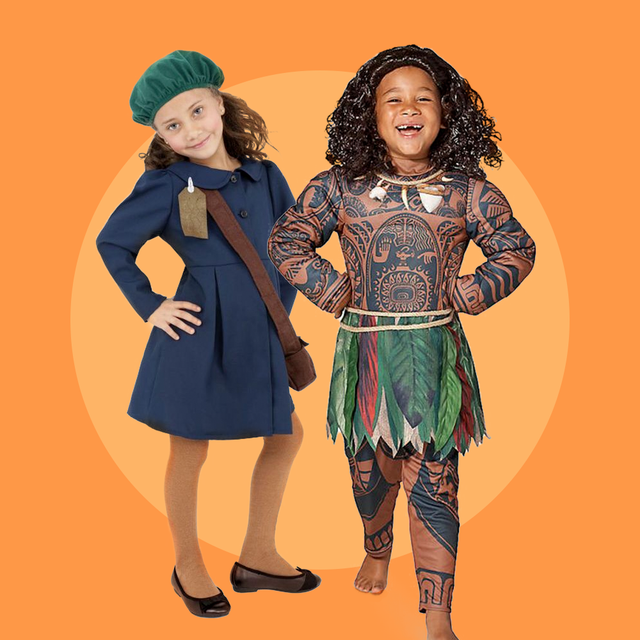
Credit: www.goodhousekeeping.com
Frequently Asked Questions On Is A Witch Doctor Costume Offensive?
Can You Dress Up As A Doctor For Halloween?
Yes, you can dress up as a doctor for Halloween. Ensure your costume is respectful and avoid using real medical insignia or impersonating a real medical professional.
What Makes A Halloween Costume Offensive?
A Halloween costume can be offensive if it includes cultural appropriation, racial or ethnic stereotypes, mocking of religious symbols, insensitivity towards historical tragedies, or perpetuates gender-based clichés. Such costumes disrespect cultural significance and can perpetuate harmful biases.
What Is An Example Of Cultural Appropriation In Halloween Costumes?
An example of cultural appropriation in Halloween costumes is wearing a Native American headdress, which disrespects indigenous cultural symbols.
What Do You Call A Witch Doctor?
A witch doctor is often called a shaman, healer, or medicine man. These practitioners are known for their traditional healing and spiritual practices.
Conclusion
Understanding cultural sensitivity is crucial, especially with costumes like the witch doctor. Navigating this topic requires empathy and respect for diversity. It’s vital to research and comprehend the origins and implications of what we wear. Making informed decisions helps foster a more inclusive society.
Choose attire that honors tradition without perpetuating stereotypes.

